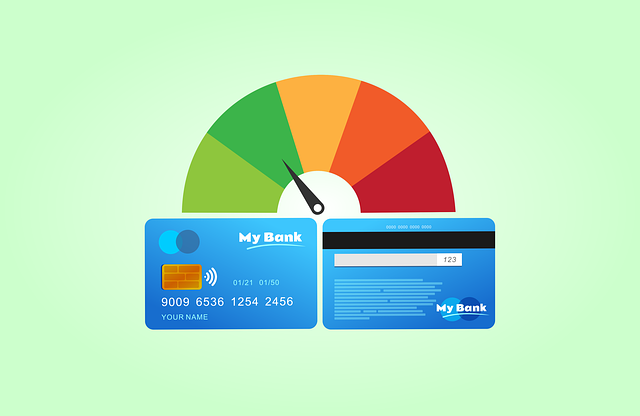What is a Business Address?

A business address serves as the official location of your business operations. It’s where clients, vendors, and regulatory authorities contact your business and often plays a crucial role in legal filings. A dedicated business address allows you to receive mail from various carriers. Using a physical business address can help avoid shipping limitations.
Below are the primary types of business addresses:
- Physical Business Address: A brick-and-mortar location where business activities take place.
- Virtual Business Address: A remote location service offering a professional business address without physical office space. Virtual mailbox services provide a physical mailing address while managing mail electronically.
- Home Address: Using your residential address as your business location.
- Registered Agent Address: A legal address required for receiving official correspondence. Businesses must have a Registered Agent that maintains regular business hours and can receive official mail.
- PO Box: A secure postal address managed by a local post office.
Importance of a Business Address for Legal and Tax Purposes
A business mailing address is essential for official filings, tax registration, and compliance with local regulations. Many jurisdictions require an actual physical address for LLC formation, obtaining permits, and business license applications. Check your state’s address requirements for your type of business entity.
Do I need a Business Address?

A business address might seem like a no-brainer, but it’s easy to forget. More to the point, deciding what type of address for your business is a crucial consideration. Here are some key points to consider.
Required for Business Registration: To form an LLC, register for taxes, or apply for certain permits, you must provide a valid business address. This can be a physical or virtual address but cannot always be a PO Box.
Address as a Point of Contact: Your business address serves as a point of contact for customers, vendors, and regulatory authorities. It’s where you receive business mail, forward mail, and manage packages.
Establishing Legitimacy: Having a defined physical business address (as opposed to a PO Box or home address) helps the perception of your business as well-established and legitimate. Customers and vendors alike will feel more comfortable and confident doing business with a firm with a defined location.
Why does a Business Address matter for Business Credit?

A business address is essential for establishing a business’s financial and professional image. It sets you up for long-term success and credibility with clients and lenders.
Impact on Business Credit Scores
A stable and professional address helps establish legitimacy and consistency across financial records. While it won’t directly impact business credit scores, that legitimacy can help create a foundation for your business credit profile.
Credibility and Trust
Lenders and credit agencies often view physical and virtual business addresses differently. A professional business address—whether virtual or physical—enhances your credibility.
Address Consistency on Credit Reports
Maintaining the same address across all credit bureaus is crucial for avoiding discrepancies that could affect your credit score.
Can I have a PO Box for my Business Address?

Although a PO Box might be convenient for personal use or a temporary solution for home-based businesses, it’s not viable for a company looking to build business credit or access funding. To present a credible and professional image, ensure your business has a physical or virtual address that meets legal and lender requirements.
Many states require a full business address and won’t accept your filing if you use a P.O. box. If your business operates as an LLC or corporation, your mail needs to go to a physical street address in the same state where your company was formed.
PO Box Limitations
Many lenders and credit agencies do not accept PO Boxes as legitimate business addresses. This limitation can hinder your ability to build credit and secure loans. PO Boxes do not convey a stable physical location, which is often required to establish trust with financial institutions.
Additionally, simply receiving postal mail at a PO Box or mailbox service does not substitute for having an actual physical location. Some lenders and credit providers may immediately disqualify applications that list anything other than a real street address.
Alternative Solutions
Consider opting for a physical or virtual business address service to meet legal and financial requirements. These alternatives provide an actual street address, enhancing your business’s professional image and compliance capabilities.
Can I use a Virtual Business Address for Business Credit?
A virtual business address is a real street address at a mail center or in a prestigious office location. It provides a professional location for your business and allows you to receive postal service without requiring physical office space. These services are particularly valuable for businesses that do not need a dedicated physical office but still want to maintain a professional presence. Virtual business addresses help protect privacy by keeping personal addresses confidential.
Virtual business addresses provide companies with a real street address, which can be used for business registration, receiving business correspondence, and improving creditworthiness. Virtual business addresses allow businesses to receive mail and packages from multiple carriers, like USPS, UPS, and FedEx. This highly versatile and scalable solution makes it an attractive option for startups, small businesses, and remote enterprises.
Virtual Business Address for Legal and Credit Needs
A virtual mailbox service can serve as a legal and professional address, fulfilling requirements for business registration and credit applications. It offers a legitimate solution for businesses that want to separate their professional and personal lives without incurring the high costs of renting physical office space.
Many virtual address services also offer mail management solutions, such as scanning, forwarding, and secure storage.
Virtual Address Options
- Virtual Mailbox: Provides remote access to business mail and packages. With a virtual mailbox, businesses can view and manage incoming mail digitally, ensuring timely responses to important correspondence without needing a physical office.
- Virtual Office Address: This option offers additional services such as phone handling, meeting room rentals, and administrative support. It allows businesses to project a more established and professional image.
- Multiple Virtual Business Addresses: Ideal for businesses with operations in different regions. By maintaining multiple virtual addresses, companies can cater to clients in various markets while centralizing mail and administrative functions.
How Virtual Business Addresses Work
Virtual business address service providers maintain physical office locations where your business address is registered. Virtual business address services often provide additional features like mail scanning and forwarding. When mail and packages arrive at the location, the virtual address service provider processes it according to your preferences.
Options typically include:
- Mail Forwarding: Physical mail is forwarded to your preferred location.
- Mail Scanning: Mail is scanned and uploaded to a secure portal for digital viewing.
- Package Handling: Providers can store or forward packages based on your instructions.
- Junk Mail Filtering: Unwanted mail is filtered and discarded.
Virtual Business Address Pros & Cons

Pros:
- Cost-effective compared to renting physical office space
- Enhances professional image
- Offers mail management services
Cons:
- Limited acceptance by some regulatory bodies
- Potential perception issues compared to a physical location
How do I ensure my Business Address is the same on all Credit Reports?
It’s possible that a business could have different addresses on different reports for a variety of reasons, such as moving locations, misspellings, or credit reporting agencies making a mistake (such as confusing your address for a similar one). Here are some tips to ensure consistency across business credit reports:
- Centralize Business Address Records: Maintain consistent records with credit bureaus, banks, and suppliers.
- Regularly Review Credit Reports: Verify that your business address is accurate across all reports.
- Notify All Stakeholders of Changes: Update your address promptly with relevant entities.
How do I get a Business Address?

Follow these steps to establish a business address:
Step 1: Evaluate Your Business Needs
Consider whether your operations require a physical office, virtual address, or hybrid solution.
Step 2: Explore Address Options
Research virtual business address services, coworking spaces, and dedicated office spaces.
Step 3: Select the Best Address Option
Choose an address that meets your legal, operational, and financial requirements.
Step 4: Register the Address
Update your business registration and financial records with the new address.
Frequently Asked Questions

Here are the most common questions about why your business address matters for business credit.
How do I change my Business Address?
To change your business address, update it with credit bureaus, tax agencies, vendors, and clients. Reasons for changing may include scaling operations, relocating to a better market, or upgrading to a dedicated office space.
Do lenders care about my Business Address?
Lenders assess business addresses to determine legitimacy and stability. A physical or virtual office address can impact loan terms, interest rates, and approval odds.
Can I use my Home Address as my Business Address?

Using your home address as your business address can seem like a simple solution, especially for small or home-based businesses. However, several challenges and limitations must be considered before making this decision.
One significant drawback is the impact on your professional image. A residential address may not convey the same legitimacy and professionalism as a dedicated business address, which can influence how customers, vendors, and partners perceive your company. Maintaining a separate business address can help establish a more credible presence in the market.
Privacy concerns are another critical consideration. When you use your home address for business purposes, your personal residence becomes publicly associated with your company, which may expose your private information to clients, suppliers, and even unsolicited visitors. This lack of separation between personal and professional spaces can be problematic.
Additionally, using a home address may not meet certain legal requirements. Some jurisdictions require a physical business address for licensing, tax registration, and other official filings. Relying on a residential address could create compliance issues, particularly if your business grows and requires formal documentation. Listing a home address as a business address may violate zoning restrictions in some locations. Certain neighborhoods may have homeowners’ associations that prohibit residents from operating any business from their homes.
While using your home address might work as a temporary solution for some businesses, weighing the potential drawbacks is essential. Exploring alternatives for a separate physical address, such as virtual business addresses or coworking spaces, can help protect your privacy, enhance your professional image, and ensure legal compliance.
What are my Business Address options for an eCommerce Business?
eCommerce businesses face a unique challenge with business addresses, which can add to the already challenging aspects of securing financing in this sector. Here are some potential ways to address this challenge:
- Virtual Business Address: Ideal for remote operations, a virtual business address provides a permanent business address that can be used for registration and legal documents.
- Coworking Space: Provides access to a physical address. Coworking spaces offer shared office resources and a professional mailing address.
- Dedicated Office Space: Best for businesses handling high volumes of inventory.
How do I decide on the Right Type of Business Address?
Choosing the appropriate business address can be difficult, especially for online or hybrid companies. Here are some crucial considerations when choosing:
- Factors to Consider: Evaluate your business size, industry, and future growth goals.
- Costs and Flexibility of Address Options: Compare the cost-effectiveness of virtual and physical addresses.
- Legal and Tax Considerations: Ensure your chosen address meets tax filing and legal requirements.
Why Your Business Address Matters for Business Credit – Final Thoughts

Selecting the right business address is a strategic decision that affects your business credit, legal compliance, and professional image. Consistency and credibility are key whether you opt for a physical location, virtual address, or hybrid solution.
By understanding your business needs and weighing the pros and cons of each option, you can choose an address that supports your operations, enhances your professional presence, and strengthens your business credit profile.
Contact us if you have more questions or want to apply for a small business loan. Our alternative financing experts can help you find the best funding options for your needs.











